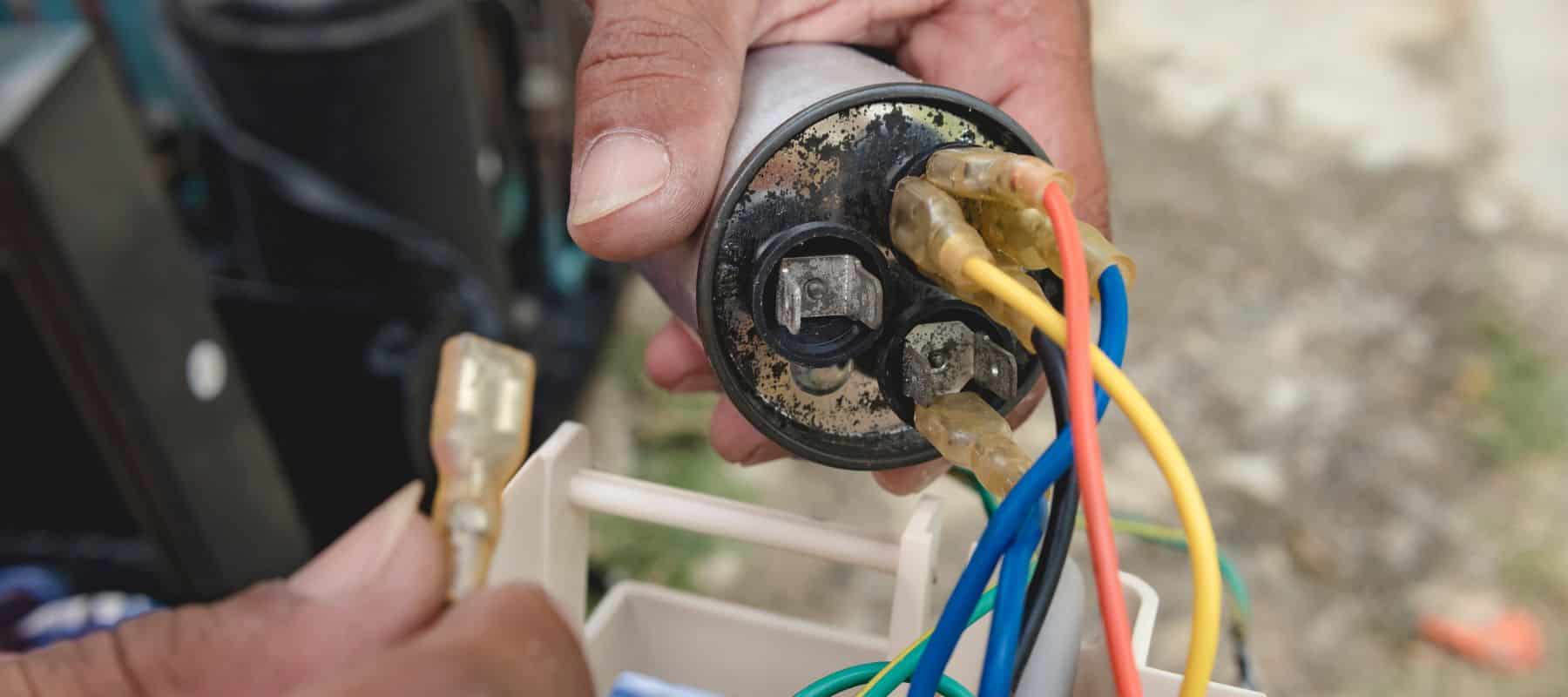Trust Summit AC To Repair A Faulty AC Capacitor
In College Station, TX, the opportunities for fun in the sun are nearly endless. After spending a day in the southern heat, it’s crucial to come home to a reliable cooling system for optimal comfort.
One essential component of your AC system is the capacitor, which plays a role in starting and running the motors. When the component goes bad, it can lead to several issues that impact the unit’s performance.
At Summit Air Conditioning & Heating, we provide dependable air conditioning repairs to ensure your unit operates with ease. In this blog, we’ll explore the symptoms of an inefficient air conditioner capacitor and what you can do to resolve the issue.
What Does An AC Capacitor Do?
An AC capacitor is essentially the battery that powers your cooling system. It stores electrical energy and provides it to the motors in your unit. This cylindrical component is essential for starting the compressor, the fan motor and the blower motor.
There are two main types of capacitors in an air conditioner: the start capacitor and the run capacitor. Both are crucial for the efficient operation of your system.
How To Tell If An AC Capacitor Is Bad
Identifying a bad capacitor early can save you from costly repairs and ensure your home stays cool. Here are some key signs to watch out for if you suspect this component is failing.
The Unit Has Difficulty Starting
One of the most common signs of a faulty capacitor is difficulty starting the air conditioning unit.
This component is responsible for providing the initial burst of energy needed to start the motors. If your system struggles to start or requires multiple attempts to operate, the capacitor might be the culprit.
Humming Sounds Come From The System
If you hear a humming noise from your unit but it’s not turning on, this could indicate a malfunctioning capacitor. The humming sound is often the result of the motor trying to start without sufficient starting power.
The AC Shuts Off On Its Own
When this component malfunctions, it can cause the system to shut off unexpectedly. If your air conditioner turns on but then shuts off after a short period, the capacitor may not be able to provide a continuous power supply to the motors.
Your Unit Blows Warm Air
Another sign that indicates an issue is a system that doesn’t provide cool air. This uncomfortable problem can occur when the capacitor can’t start the compressor, which is essential for the cooling process.
You Experience Rising Energy Bills
When the capacitor is not functioning correctly, the motors must work harder to start and run. This increased effort can lead to higher energy consumption, which will be reflected in your electricity bills.
Visual Signs Of A Capacitor Issue
In addition to operational issues, there are visual indicators that can help you determine if your AC capacitor is failing. Having one of our trusted professionals perform a physical inspection can often reveal clear signs of trouble.
Swelling And Bulging
A visual inspection of your AC unit can sometimes reveal physical issues. If you notice that the capacitor is swollen or bulging, it’s a clear sign that it requires replacement.
It’s crucial that you contact a certified HVAC technician, like those at Summit AC, to repair or replace this component. Its high-voltage nature makes it dangerous, leading to potential hazards if handled incorrectly.
Leaking Fluid
Leaking fluid from the capacitor is another indicator of a problem. If you see any fluid around the part or notice any oily residue, it’s time to call our professionals for prompt air conditioner repair.
Benefits Of Timely Air Conditioner Capacitor Replacement
Having our team perform prompt capacitor replacement can bring several benefits. A few advantages you can expect are:
- Improved efficiency — Your AC unit will operate efficiently, leading to lower energy bills.
- Enhanced performance — A new capacitor ensures your system runs smoothly and provides consistent cooling.
- Extended lifespan — Addressing internal issues can prevent strain on other components, extending the overall lifespan of your system.
- Reduced repair costs — Timely replacement can prevent other parts from failing, reducing the need for expensive repairs.
Ensuring your capacitor is in good condition will help maintain a comfortable indoor environment. Protect your investment in your HVAC system by contacting our team to replace this part!
Trust Our Team For Professional College Station AC Repair
At Summit Air Conditioning & Heating, we’re dedicated to providing top-notch HVAC services to the residents of College Station, TX. If you suspect you have a bad capacitor or need any other air conditioning services, don’t hesitate to contact us.
Our experienced technicians are ready to help you keep your home comfortable and your system running efficiently. Your comfort is our priority — reach out to our team for thorough air conditioner repair services!


